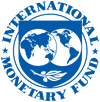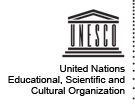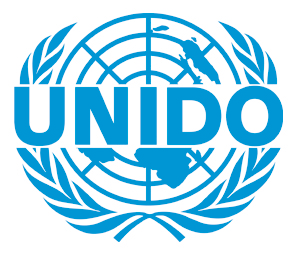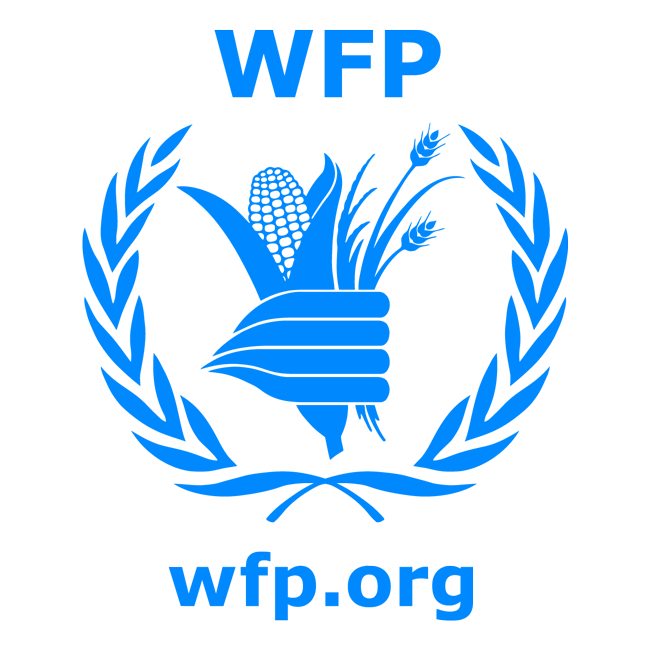International Women's Day 2015 - Empowering Women - Empowering Humanity: Picture It!
The official United Nations theme for International Women's Day 2015 is "Empowering Women - Empowering Humanity: Picture It!"
Celebrated globally on 8 March, International Women's Day will highlight the Beijing Declaration and Platform for Action, a historic roadmap signed by 189 governments 20 years ago that sets the agenda for realizing women's rights. While there have been many achievements since then, many serious gaps remain. This is the time to uphold women's achievements, recognize challenges, and focus greater attention on women's rights and gender equality to mobilize all people to do their part. The Beijing Platform for Action focuses on 12 critical areas of concern, and envisions a world where each woman and girl can exercise her choices, such as participating in politics, getting an education, having an income, and living in societies free from violence and discrimination. Read more »
Official UN Observance for IWD 2015
Friday 6 March, 9-10 a.m. EST, Trusteeship Council Chamber, UN Secretariat, New York
[webcast].
This event was held as part of the High-level Thematic Debate on "Advancing Gender Equality and Empowerment of Women and Girls for a Transformative Post-2015 Development Agenda", hosted by the President of the UN General Assembly. With the theme of "Empowering Women, Empowering Humanity: Picture It", the IWD event saw high-level participation including, Sam Kahamba Kutesa, President of the UN General Assembly; Ban Ki-moon, UN Secretary-General; Phumzile Mlambo-Ngcuka, UN Women Executive Director; and other dignitaries.
International Women's Day Messages
United Nations
 Message from Ban Ki-moon, UN Secretary-General
Message from Ban Ki-moon, UN Secretary-General
Twenty years ago, when the world convened a landmark conference on women’s human rights, the devastating conflict in the former Yugoslavia prompted deserved attention to rape and other war crimes there against civilians. Two decades later, with girls as young as seven not only targeted but used as weapons by violent extremists, it would be easy to lose heart about the value of international gatherings. But while we have a long way to go to achieve full equality – with ending gender-based violence a central goal – progress over the past two decades has proven the enduring value of the 1995 Beijing Conference on Women.
Since the adoption of its Declaration and Platform for Action, more girls have attained more access to more education than ever before. The number of women dying in childbirth has been almost halved. More women are leading businesses, governments and global organizations. I welcome these advances. At the same time, on this International Women’s Day, we must acknowledge that the gains have been too slow and uneven, and that we must do far more to accelerate progress everywhere. Read more »
Related Links
UN Women
Message from Phumzile Mlambo-Ngcuka, UN Under-Secretary-General and UN Women Executive Director

In 1995, at the Fourth World Conference on Women in Beijing, world leaders committed to a future where women are equal.
One hundred and eighty nine countries and 4,000 civil society organizations, attended the conference.
Women left Beijing with high hopes, with a well-defined path towards equality, and firm commitments at the highest level. Their hope was that we would see this by 2005.
Today, not one single country has achieved equality. It is more urgent than ever that we define – and stick to – a time frame.
There has been some progress in the last 20 years – although it has been slow and uneven.
Countries have narrowed the gender gap in education and some have even reached gender parity in school enrolment.
They have reduced the toll of maternal mortality and morbidity. Many more women survive pregnancy and childbirth than in 1995. Read more »
Related Links
International Fund for Agricultural Development (IFAD)

Message from Kanayo F. Nwanze, President of IFAD
Welcome to this year’s celebration of International Women’s Day.
IFAD is proud to be hosting today’s programme in collaboration with the other Rome-based agencies.
I am very pleased to be joined by Ertharin Cousin of the World Food Programme and by Marcela Villarreal of the Food and Agriculture Organization.
I would also like to thank our moderator, and each of the panelists, who will share their insights and knowledge with us today.
It has been said that women are the backbone of rural societies. Not only do they grow and process food, they make sure their families are well-fed and well-nourished.
Too often, however, being the “backbone of society” simply means that rural women are the ones doing the backbreaking work. Read more»
Related Links
International Labour Organization (ILO)

Message from Guy Ryder, ILO Director-General
Two decades ago the 4th World Conference on Women in Beijing adopted a visionary and far-reaching Declaration and Platform for Action on gender equality and women’s empowerment. What progress there has been since then must be tempered by the reality that it is far less than what we had hoped to see by now.
In the areas of national gender equality policies, and legislation against discrimination based on sex, much has been accomplished. Nevertheless, progress on the ground remains elusive.
Globally, only about half the world’s women are in the labour force, compared to nearly 80 per cent of men – a figure basically unchanged in 20 years. A large gender pay gap hasn’t narrowed much, with women still earning on average 23 per cent less than men. And new evidence is emerging that mothers suffer a wage penalty, often over and above the gender pay gap. Read more »
Related Links
- International Labour Organization page on International Women's Day
- ILO: Progress on gender equality at work remains inadequate
International Monetary Fund (IMF)
 Message from Christine Lagarde, Managing Director of IMF
Message from Christine Lagarde, Managing Director of IMF
Related Links:
- International Monetary Fund page on International Women's Day
- Gender equality means better business, say heads of MDBs and IMF
- To mark International Women's Day, find out how much you know about gender, law and the global economy. Take the International Monetary Fund's #genderequality quiz and share your results via social media
International Organization for Migration (IOM)
Message from William Lacy Swing, Director General of IOM
 More women are on the move than ever before. They represent approximately half of the world’s one billion migrants and are approximately half of the estimated 51 million displaced persons.
More women are on the move than ever before. They represent approximately half of the world’s one billion migrants and are approximately half of the estimated 51 million displaced persons.
On this year’s International Women’s Day, IOM calls on the international community to ensure the empowerment of migrant and displaced women through the full realization of their human rights.
As we commemorate the historic twenty-year anniversary and review of the Beijing Declaration and Platform for Action, we must acknowledge that, while there have been many significant achievements in realizing women’s rights, serious gaps remain in making gender equality a reality. This is particularly true for migrant women.
Migration can empower women in search of new opportunities and a better life for themselves and their families. The income-generating opportunities, access to education and economic independence found through migration all serve to empower women.
Yet, migration can also be fraught with challenges such as discrimination, exclusion and even violence. Those who feel driven to move irregularly or flee due to disaster or conflicts face additional risks of trafficking, exploitation and marginalization.
To correct this, we must continue to engage and learn from migrant women as we review the accomplishments of the last twenty years and chart a course for the next twenty. Read more »
Related Links
- International Organization for Migration page on International Women's Day
- Empower Women, Empower Humanity: A Video from IOM
- Picture It!: Photos and Stories of Empowered Women from Around the World: English | Español
- Women on the Move: A Look at Migration, Women and Cities
- "I Want to Inspire More Women to Become Carpenteras"
- Improving Livelihoods and Standing Together: Changing Communities in Sri Lanka
Joint United Nations Programme on HIV/AIDS (UNAIDS)
 Message from Michel Sidibé, Executive Director of UNAIDS
Message from Michel Sidibé, Executive Director of UNAIDS
As we celebrate International Women’s Day, world leaders and civil society are gathering in New York to take part in the 59th session of the Commission on the Status of Women. There, they will review the progress made since the adoption 20 years ago of the Beijing Declaration and Platform for Action, which set ambitious targets designed to improve the lives of women around the world. The Platform for Action strived to make sure that women and girls could exercise their freedom and realize their rights to live free from violence, go to school, make decisions and have unrestricted access to quality health care, including to sexual and reproductive health-care services.
In the response to HIV, there have been major advances over the past 20 years and new HIV infections and AIDS-related deaths are continuing to decline. However, in reducing new infections this success has not been shared equally.
In 2013, 64% of new adolescent infections globally were among young women. In sub-Saharan Africa, young women aged 15 to 24 are almost twice as likely to become infected with HIV as their male counterparts. Gender inequalities, poverty, harmful cultural practices and unequal power relations exacerbate women’s vulnerability to HIV, but concerted global commitment and action can reverse this.
United Nations Development Programme (UNDP)

Message from Helen Clark, UNDP Administrator
This week, the United Nations Commission on the Status of Women will commemorate the 20th anniversary of the Beijing Declaration and Platform for Action, which remains the world’s best blueprint for achieving gender equality and empowering women. The review of this visionary roadmap, adopted at the Fourth World Conference for Women in 1995, is an opportunity to celebrate the world’s progress toward ensuring the rights and opportunities of women and girls, and also to renew and reinvigorate commitments to achieve gender equality.
One of the great achievements of the Beijing Platform for Action was the clear recognition that women’s rights are human rights. Since that historic gathering in Beijing, when 17,000 participants and 30,000 activists gathered to voice and demonstrate their support for gender equality and women’s empowerment, there has been increasing recognition that gender equality, in addition to being a human right, is also critical to making development progress. If women and girls are not able to fully realize their rights and aspirations in all spheres of life, development will be impeded. Read more »
United Nations Educational, Scientific and Cultural Organization (UNESCO)

Message from Irina Bokova, Director-General of UNESCO
2015 marks the 20th anniversary of the 4th World Conference on Women that culminated in the adoption of the Beijing Declaration and Platform for
Action. In 1995, States and civil society representatives signed a commitment for gender equality, guided by the conviction that "women's empowerment and their full participation on the basis of equality in all spheres of society, including participation in the decision-making process and access to power, are fundamental for the achievement of equality, development and peace." I was among the 17,000 delegates from across the world, who gathered in Beijing in 1995, and I remember leaving Beijing with hope and a sense of accomplishment. Read more (pdf) »
United Nations Environment Programme (UNEP)
 Message from Achim Steiner, Executive Director of UNEP
Message from Achim Steiner, Executive Director of UNEP
United Nations Industrial Development Organization (UNIDO)
 Message from LI Yong, Director General of UNIDO
Message from LI Yong, Director General of UNIDO
Empowering women is empowering humanity. Gender equality and women’s empowerment is central to UNIDO’s work as it is not only a matter of human rights, but also a precondition for sustainable development and economic growth, which are drivers of poverty reduction and social integration. When women and men are more equal, economies grow faster, more people are lifted out of poverty and the overall well-being of societies is enhanced. Central to UNIDO’s mission of inclusive and sustainable industrial development (ISID) is the urgent need to harness the economic potential of women – half of the world’s population. Women are powerful drivers of ISID and their role is poised to become even greater in the future.
However, women and girls still make up 70 per cent of the world’s extreme poor. The majority lives in rural areas, where communities are resource-poor and isolated, and most subsist on small-scale productive activities. UNIDO helps develop competitive agro-industries in order to create jobs and sustainable livelihoods for the rural poor. By providing technical assistance, UNIDO aims to strengthen agro-industrial capabilities and linkages to facilitate economic transformation in rural communities, particularly among women and youth. For example, UNIDO provides rural women and men equal access to new agro-technologies and skills upgrading. Assistance is also provided for process optimization, compliance with quality and environmental standards, and the identification of market opportunities.
United Nations Population Fund (UNFPA)
Message from Dr. Babatunde Osotimehin, Executive Director of UNFPA

During the past 20 years, we have witnessed remarkable advances in promoting the human rights and dignity of women and girls and their full and equal participation in society.
The International Conference on Population and Development (ICPD) in Cairo, and the Fourth World Conference on Women in Beijing bolstered progress for women's rights to make their own choices about their bodies and their futures.
For the first time, world leaders proclaimed sexual and reproductive health and reproductive rights as human rights integral to gender equality and women's dignity and empowerment. These rights are essential for the enjoyment of other fundamental rights, for eradicating poverty and for achieving social justice and sustainable development.
Today, on International Women's Day, we celebrate the progress we have made. And, we pledge to redouble efforts to complete these unfinished agendas. We will not stop until we cross the finish line and realize equality between girls and boys and women and men.
Together, we have come a long way. Today, more girls are going to school, more women have joined the labour force, and more women have access to sexual and reproductive health services, including family planning.
United Nations Volunteers (UNV)
Message from Richard Dictus, Executive Coordinator of UNV

The United Nations Volunteers (UNV) programme is proud to celebrate International Women’s Day in this year of Beijing plus 20.
From the Partners for Prevention project in the Asia-Pacific region to the Female Genital Mutilation project in Sudan, UNV supporting its UN partner agencies, has a long history of working towards Gender Equality and Women’s Empowerment and integrating these issues into all of its projects and programmes.
But the most vivid examples of the continued pursuit of gender equality in development and peace, are UN Volunteers themselves making a difference throughout the world.
Ms. Bicharo Gure is a UN Volunteer currently serving as a mechanic in the United Nations Organization Stabilization Mission in the Democratic Republic of the Congo. Bicharo is the picture of an empowered woman, who is empowering humanity.She once said: “Work doesn’t know if you are male or female.” And when she was burdened by gender stereotypes, she would ask herself, “Can I replace a wheel single-handedly? – Check. Can I drive a truck? – Check.” And she would keep working, strongly determined to make a change.
Related Links
World Food Programme (WFP)
 Picture it - a Nepali schoolgirl on the top of Mount Everest. At primary school, where she received WFP school meals, Nimdoma used to dream of doing extraordinary things. She made her dream come true and didn't stop at Everest, which she conquered when she was 17 years old. Nimdoma, a wonderful example of women's empowerment, went on to climb the highest mountain on every continent with a Nepali, all-woman, climbing team.
Picture it - a Nepali schoolgirl on the top of Mount Everest. At primary school, where she received WFP school meals, Nimdoma used to dream of doing extraordinary things. She made her dream come true and didn't stop at Everest, which she conquered when she was 17 years old. Nimdoma, a wonderful example of women's empowerment, went on to climb the highest mountain on every continent with a Nepali, all-woman, climbing team.
On International Women's Day (March 8) this year, I want to pay tribute to the girls and women who dream big. Empowering women empowers humanity. At the World Food Programme, we believe that women and girls who are empowered will lead to our ultimate goal, a world with zero hunger. Women and their work – paid and unpaid -- are central to the production, preparation and provision of food, so are essential to food and nutrition security.
While every March 8 we celebrate the many images of women, there is another picture that comes to mind, of women's hunger and deprivation. A WFP gender assessment of one of the poorest countries in the world in 2014 found women had half the time that men had to rest in the course of a day. At 7am, when men woke up to have their breakfast, women had already worked for two hours to prepare the food, fetch water and get the children washed and they also went to bed later.
Related Links
- World Food Programme page on International Women's Day
- How Being Energy Efficient In Ethiopia Is Helping The Environment
- Niger: School Meals Help Girls Reach Their Full Potential
World Tourism Organization (UNWTO)
Message from Taleb Rifai, Secretary-General of UNWTO
On the occasion of International Women's Day, UNWTO Secretary-General, Taleb Rifai, calls upon the tourism sector to step up policies and business practices that promote gender equality and women's empowerment.
The UNWTO/UN Women Global Report on Women in Tourism shows that tourism can offer significant opportunities to narrow the gender gap in employment and entrepreneurship as women are nearly twice as likely to be employers in tourism as compared to other sectors. The Report also shows that women are well represented in service and clerical level jobs, but poorly represented at professional levels and earn 10% to 15% less than their male counterparts.